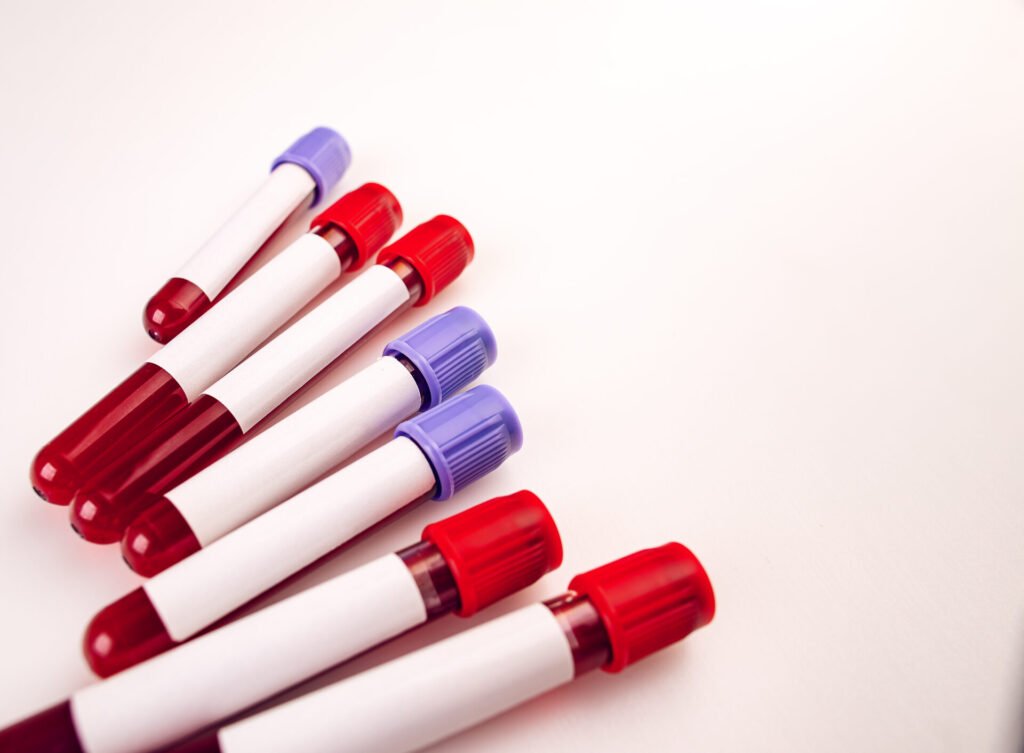
Blood tests are a routine part of healthcare, helping doctors assess your overall health, diagnose conditions, and monitor ongoing treatments. But if you’ve ever looked at a lab report filled with numbers and abbreviations, you might have wondered: What do these tests actually mean? In this guide, we’ll break down some of the most common blood tests, their purposes, and what the results might indicate.
Complete Blood Count (CBC)
What is a CBC?
A Complete Blood Count (CBC) measures different components of your blood, including red blood cells (RBCs), white blood cells (WBCs), hemoglobin, hematocrit, and platelets. This test provides important insights into your overall health.
Why is it done?
Doctors use a CBC to check for:
- Anemia (low red blood cells or hemoglobin levels)
- Infections (elevated white blood cell count)
- Blood clotting issues (abnormal platelet count)
- Immune system disorders or bone marrow conditions
What do the results mean?
- Low RBCs, hemoglobin, or hematocrit → Possible anemia, blood loss, or nutritional deficiencies.
- High WBC count → Possible infection, inflammation, or immune response.
- Low platelet count → Possible bleeding disorders.
Lipid Profile (Cholesterol Test)
What is a lipid profile?
This test measures different types of fats in your blood, including:
- Total cholesterol
- LDL (low-density lipoprotein, “bad” cholesterol)
- HDL (high-density lipoprotein, “good” cholesterol)
- Triglycerides (another type of fat in the blood)
Why is it done?
A lipid profile helps assess your risk of heart disease and stroke.
What do the results mean?
- High LDL (“bad” cholesterol) → Increased risk of heart disease.
- High HDL (“good” cholesterol) → Protective against heart disease.
- High triglycerides → Linked to heart disease and metabolic issues.
Tip: Maintaining a healthy diet, exercising, and reducing saturated fats can help improve your lipid profile.
Blood Glucose Test (Fasting Blood Sugar & HbA1c)
What is a blood glucose test?
This test measures the amount of sugar (glucose) in your blood and helps diagnose and monitor diabetes.
Why is it done?
Doctors recommend glucose tests for:
- Diagnosing diabetes or prediabetes
- Monitoring blood sugar levels in diabetic patients
- Checking for low blood sugar (hypoglycemia) or high blood sugar (hyperglycemia)
What do the results mean?
- Fasting blood glucose below 100 mg/dL → Normal.
- 100-125 mg/dL → Prediabetes.
- 126 mg/dL or higher → Diabetes.
- HbA1c over 6.5% → Indicates long-term high blood sugar levels.
Tip: Eating a balanced diet, managing stress, and regular exercise can help keep your blood sugar in check.
Liver Function Tests (LFTs)
What are LFTs?
Liver function tests check the health of your liver by measuring enzymes and proteins in your blood, including:
- ALT (alanine aminotransferase) & AST (aspartate aminotransferase) → Enzymes that indicate liver damage.
- ALP (alkaline phosphatase) → Linked to liver, bone, and gallbladder health.
- Bilirubin → A substance that can indicate liver disease if elevated.
Why is it done?
LFTs help diagnose:
- Liver disease (hepatitis, fatty liver, cirrhosis, etc.)
- Bile duct blockages
- Alcohol-related liver damage
What do the results mean?
- Elevated ALT/AST → Possible liver inflammation or damage.
- High bilirubin → Potential liver or bile duct issues.
Kidney Function Tests (Creatinine & BUN)
What are kidney function tests?
These tests measure how well your kidneys are filtering waste from your blood. Key markers include:
- Creatinine → A waste product from muscle metabolism.
- Blood Urea Nitrogen (BUN) → Indicates how well your kidneys are functioning.
Why is it done?
Doctors use these tests to:
- Check for kidney disease or dysfunction
- Monitor kidney function in people with diabetes or high blood pressure
What do the results mean?
- High creatinine or BUN levels → Possible kidney dysfunction or dehydration.
Tip: Drinking enough water and managing blood pressure can support kidney health.
Thyroid Function Tests (TSH, T3, and T4)
What are thyroid tests?
These tests measure the levels of thyroid hormones in your blood:
- TSH (Thyroid-Stimulating Hormone) → Regulates thyroid function.
- T3 (Triiodothyronine) & T4 (Thyroxine) → Control metabolism and energy levels.
Why is it done?
To diagnose:
- Hypothyroidism (underactive thyroid)
- Hyperthyroidism (overactive thyroid)
What do the results mean?
- High TSH, Low T3/T4 → Possible hypothyroidism.
- Low TSH, High T3/T4 → Possible hyperthyroidism.
Tip: Thyroid issues can affect weight, mood, and energy levels. Regular check-ups help keep it under control.
Understanding your blood test results can help you take charge of your health. If any of your results are out of range, don’t panic—many factors can affect them, including diet, hydration, stress, or even the time of day. Always discuss your test results with your doctor for a clear diagnosis and the next steps.
If you need a blood test done conveniently from home, consider booking an appointment with London Phlebotomy’s professional phlebotomy service.
